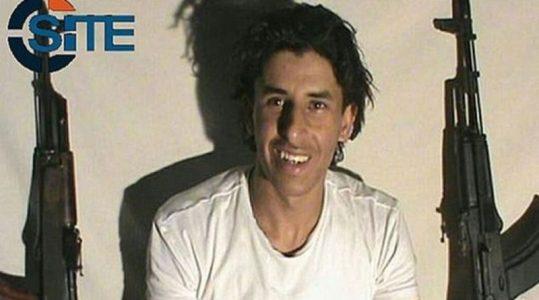
ISIS gunman who massacred 38 in attack on tourists in Tunisia took illegal drug to deaden his emotions
The ISIS murderer who killed 38 tourists including 30 Britons in Sousse, Tunisia took an illegal drug to deaden his emotions before carrying out his atrocity, it has emerged.
Yesterday as the trial of 17 people accused of complicity in the massacre reopened in the Tunisian capital of Tunis, the judge revealed the results of an autopsy performed on gunman Seifeddine Rezgui, 23.
Judge Rached Sebii and five colleagues confirmed Revgui had taken one drug to enhance physical endurance and another to reduce emotional response, The Times reported.
The drugs were not specified but the Associated Press reported the judge said Rezgui’s post-mortem showed the presence of an illegal drug as well as medication.
On June 26, 2015, Rezgui walked on to the beach of the Riu Imperial Marhaba Hotel in Sousse armed with a Kalashnikov assault rifle and started shooting at tourists sunbathing in lounge chairs.
The young Tunisian, who had trained with Islamic militants in neighbouring Libya, then continued on to the hotel pool before throwing a grenade into the hotel.
Islamic State claimed responsibility for the attack.
Around half an hour passed between Rezgui’s first shots and his being killed by police. Six policemen are among the defendants on trial, charged with potentially criminal negligence and delay.
In February 2017 at a London inquest Judge Nicholas Loraine-Smith branded the officers’ actions ‘at best shambolic and at worst cowardly’.
In total 26 people are on trial but only 17 appeared on court, the remainder – including all the police officers – having elected not to contest the charges or to submit evidence in writing. All the defendants deny any direct role in the attack.
The trial has been postponed several times at the lawyers’ request. It reopened yesterday more than three and a half years after the attack.
Some of the defendants face potential capital punishment sentences for charges including premeditated murder, threatening state security and belonging to a terrorist-linked group; although Tunisia has had a moratorium on the use of the death penalty since 1991.
Some of those who testified acknowledged ties to the man considered the orchestrator of the attack, Chamseddine al-Sandi, an ISIS planner who is believed to have fled Tunisia shortly after the attack.
Some defendants accepted al-Sandi asked them to case the area ahead of time.
One said he sent al-Sandi photos via the internet of potential targets, including foreign businesses based in Tunis.
Wassim Sassi, a student from Tunia, said he had been recruited by al-Sandi, and attended an ISIS camp. When he returned from Libya to Tunisia he was pressured to provide disposable phones that were used to co-ordinate the massacre.
Defendant Mahmoud Kachouri admitted yesterday he was a classmate of Rezgui’s and they used to have coffee together, but insisted ‘he never talked to me about the operation he was planning.’
The defendants in the court and their co-accused are among a total of 40 people suspected of involvement in the attack, according to defense lawyer Hanene Khemiri, who alleged some of the defendants were tortured by police.
The court is expected to rule on February 6.
Source: Daily Mail





